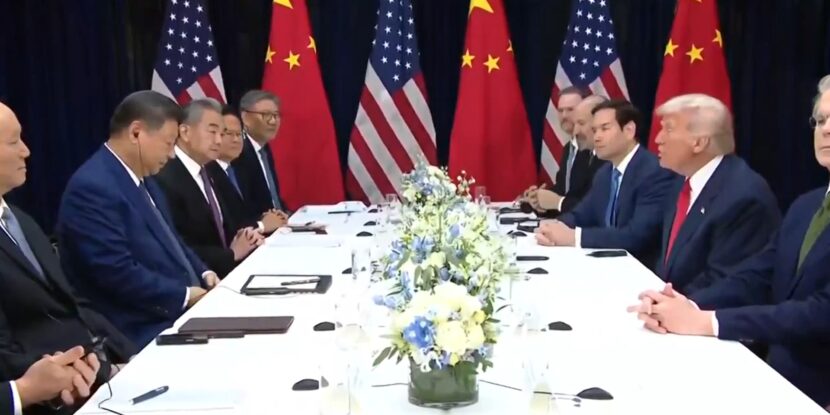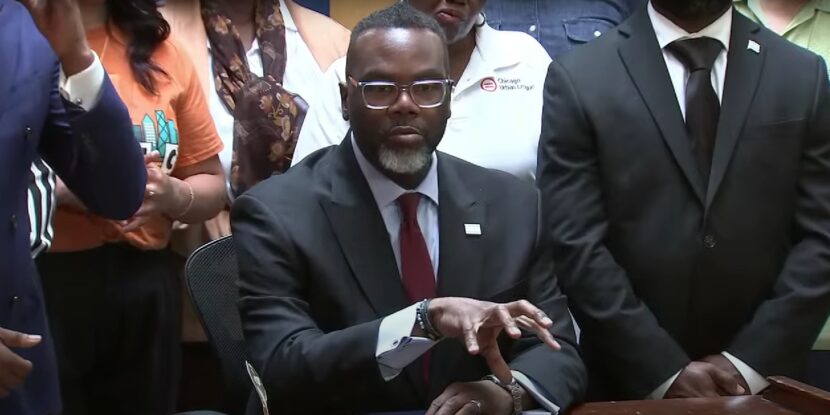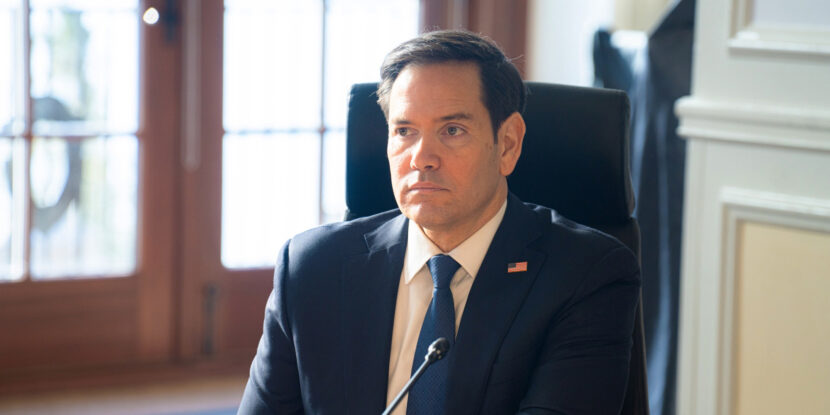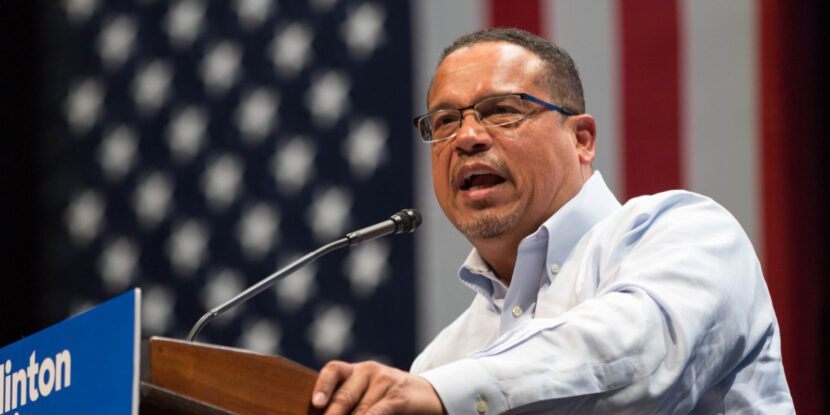❓WHAT HAPPENED: President Donald J. Trump’s summit with Chinese leader Xi Jinping has yielded some benefits for American farmers, manufacturers, and consumers—although the meeting appears to have only paused the U.S.-China trade war rather than brought it to a comprehensive conclusion.
👤WHO WAS INVOLVED: President Trump, Chinese leader Xi Jinping, and U.S. Treasury Secretary Scott Bessent.
📍WHEN & WHERE: The agreement was announced on Thursday.
💬KEY QUOTE: “So you know, our great soybean farmers, who the Chinese used as political pawns, that’s off the table, and they should prosper in the years to come,” – Scott Bessent.
🎯IMPACT: China agreed to increase its purchases of U.S. soybeans, finalize approval for the sale of TikTok, delay the implementation of rare earth mineral export controls, and crack down on the export of fentanyl precursors. In exchange, Trump agreed to slight reductions in U.S. tariffs on Chinese goods.
President Donald J. Trump‘s summit with Chinese leader Xi Jinping has yielded some benefits for American farmers, manufacturers, and consumers—although the meeting appears to have only paused the trade war rather than brought it to a comprehensive conclusion. China agreed to increase its purchases of U.S. soybeans, finalize approval for the sale of TikTok, delay the implementation of rare earth mineral export controls, and crack down on the export of fentanyl precursors. In exchange, Trump agreed to slight reductions in U.S. tariffs on Chinese goods.
“It was an amazing meeting,” President Trump said aboard Air Force One after departing the summit with Xi, held in South Korea. He ranked the talks, “Twelve out of ten.”
The most significant development to emerge from the summit was China’s three-year agreement to purchase 25 million metric tons of U.S. soybeans annually. “So you know, our great soybean farmers, who the Chinese used as political pawns, that’s off the table, and they should prosper in the years to come,” Trump’s Treasury Secretary Scott Bessent detailed Thursday morning. As part of the trade dispute with the U.S., China had slashed its imports of American soybeans to near zero.
Additionally, Secretary Bessent revealed that President Trump secured Xi’s approval for the sale of the TikTok social media app. “In Kuala Lumpur, we finalized the TikTok agreement in terms of getting Chinese approval, and I would expect that would go forward in the coming weeks and months, and we’ll finally see a resolution to that,” the Treasury Secretary said.
Trump also forced Xi to, at least for the moment, back down from imposing unprecedented export controls on Chinese rare earth minerals, refined rare earth materials, and equipment needed to process rare earths. Set to take effect on December 1, 2025—and impact nearly every country around the world—China agreed to delay export control implementation for one year. However, Xi ultimately did not remove the threat entirely.
Lastly, President Trump announced that Xi pledged to work “very hard to stop the flow” of fentanyl precursors to Central and South American drug cartels. Precisely what measures the Chinese intended to implement to stymie its lucrative illicit drug industry are unclear.
In exchange, Trump agreed to cut a 10 percent tariff on Chinese goods, imposed in response to the fentanyl trade, in half. This will effectively bring the overall tariff rate on Chinese exports from 57 percent to 47 percent. While the concessions made by Xi mark a degree of progress and cooling of trade tensions, markets appear to have already largely priced in the progress. By and large, market analysts see the summit outcome as a tactical pause, but expect U.S.-led global efforts to decouple from China to continue.
Join Pulse+ to comment below, and receive exclusive e-mail analyses.




















